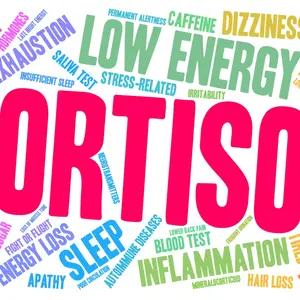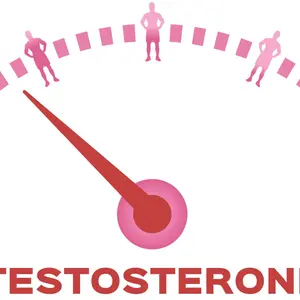

WELLthier Living and Aging

WELLthier Living and Aging
Caffeine's Surprising Effects on Hormones and Health
I love my morning cup of coffee. I drink it black for the antioxidant benefits. It wakes me up and sharpens my mind. Coffee has many benefits such as enhancing energy, mental clarity and physical performance. Are you a caffeine enthusiast or someone trying to manage their caffeine intake for better health?
Caffeine is a beloved psychostimulant found naturally in various plants. Coffee and tea are the most used sources. It is also present in kola nuts, cocoa beans, yerba mate, and guarana berries and in various other forms, including energy drinks, soft drinks, and even chocolate.
While caffeine has many benefits, there are also some downsides and precautions to consider when drinking a caffeinated beverage. Let's explore the world of caffeine, how it affects our bodies, and its impact on hormones and overall well-being.
Genetics and Variability: One fascinating aspect of caffeine is its varied effects on individuals. Some people can consume high levels without issue, while others are more sensitive. While the enzyme CYP1A2 is responsible for metabolizing 95% of caffeine, genetics play a role. Genetic studies have shed light on how our bodies process caffeine and its impact on sleep, anxiety, and even neurological, cardiovascular and psychiatric conditions.1
Hormones and Caffeine: Caffeine can influence hormones, especially in specific situations.1
- During pregnancy, caffeine metabolism is prolonged. The half-life of carreine is the time it take the body to eliminate half of the consumed amoutn. Most people have a caffeine half-life of 2.5 to 5 hours, and it may take up to 10 hours to be completely out of your system. In the third trimester of pregnancy, the half-life increases to as many as 11.5 to 18 hours and daily consumption may lead to caffeine accumulation in the fetus. Therefore, it is advisable to limit intake.
- Oral contraceptives can also affect caffeine metabolism and may double caffeine half-life.4
- Women may experience fluctuations in caffeine half-life during their menstrual cycle. Some studies showed that caffeine metabolism slows in the luteal phase, just after ovulation and prior to a period.4
Factors Affecting Caffeine Clearance: Several factors may influence how our bodies handle caffeine. Diet plays a role and so does the liver enzyme CYP1A2. Foods and supplements affect this enzyme, which clears caffeine from our system.1
- Speeds clearance of caffeine: Brassica vegetables such as broccoli, cauliflower, kale, brussels sprouts, mustard greens, arugula, watercress, bok choy, collard greens, cabbage, turnips, radishes, wasabi, horseradish, kohlrabi, rutabaga and vitamin C-rich foods, increase the speed of caffeine clearance. Apiaceous vegetables such as carrots, celery, parsley, caraway, fennel and parsnips slow caffeine clearance. However, an interesting phenomenon is that apiaceous vegetables can mitigate the effects of exposure to air pollution. These vegetables protect the body from accumulation of acrolein, an irritant to the lungs and skin with a strong unpleasant odor, abundantly found in cigarette smoke and automobile exhaust.2
- Slow caffeine clearance: South Asians may have lower caffeine metabolism due to their culinary practices of using curries with curcumin and turmeric. Flavonoids such as quercetin also slows caffeine metabolism and has been used in people fighting viruses, allergies and mast cell disorders.
- Alcohol's impact: Alcohol can increase caffeine half-life and reduce clearance, leading to extended caffeine effects. It increases caffeine half-life by 72% and reduces clearance by 36%. If caffeine is consumed to wake up and stay alert during the day and alcohol is used to relax and slow down at night, this often interrupts sleeps leaving us tired and creating a viscous cycle of dependency.
Drug Interactions: Although regarded safe in small quantities, caffeine can interact with prescription and over-the-counter medications.3 Many drugs, including certain serotonin reuptake inhibitors (particularly, fluvoxamine), antiarrhythmics (mexiletine), antipsychotics (clozapine), psoralens, idrocilamide and phenylpropanolamine, bronchodilators (furafylline and theophylline) and quinolones (enoxacin), affect and inhibit the CYP1A2 enzyme and prolong caffeine half-life.
Toxic Effects: The most serious caffeine-related central nervous systems effects include seizures and delirium. Symptoms affecting the cardiovascular system range from moderate increases in heart rate to more severe cardiac arrhythmia. Caffeine has also been observed to affect gastrointestinal, infectious, respiratory and skin disorders.
Finding Balance: Understanding how caffeine interacts with your body is crucial for maintaining a healthy balance. Whether you're a coffee lover or just looking to manage your caffeine intake, knowledge is power. Be mindful of your unique response to caffeine and consider factors like genetics and diet.
Adults are advised to limit their caffeine consumption in one sitting to 200 mg (about two regular 125 ml cups of coffee) and to 400 mg over a daytime period. Pregnant women should not exceed 200 mg caffeine per day, and for children and adolescents, the safe limit is set at 3 mg/kg per day. Sensitive people should have a lower dose or eliminate it completely.
Avoid caffeine altogether if you have anxiety, panic attacks, palpitations, a racing heart and difficulty falling or staying asleep.
REFERENCES
1 Nehlig A. Interindividual Differences in Caffeine Metabolism and Factors Driving Caffeine Consumption. Pharmacol Rev. 2018;70(2):384-411. doi:10.1124/pr.117.014407
2 Redding MC, Pan JH, Kim YJ, et al. Apiaceous vegetables protect against acrolein-induced pulmonary injuries through modulating hepatic detoxification and inflammation in C57BL/6 male mice. J Nutr Biochem. 2022;101:108939. doi:10.1016/j.jnutbio.2022.108939
3 Carrillo JA, Benitez J. Clinically significant pharmacokinetic interactions between dietary caffeine and medications. Clin Pharmacokinet. 2000;39(2):127-153. doi:10.2165/00003088-200039020-00004
4 Pharmacology of Caffeine, https://www.ncbi.nlm.nih.gov/books/NBK223808/


 By
By







